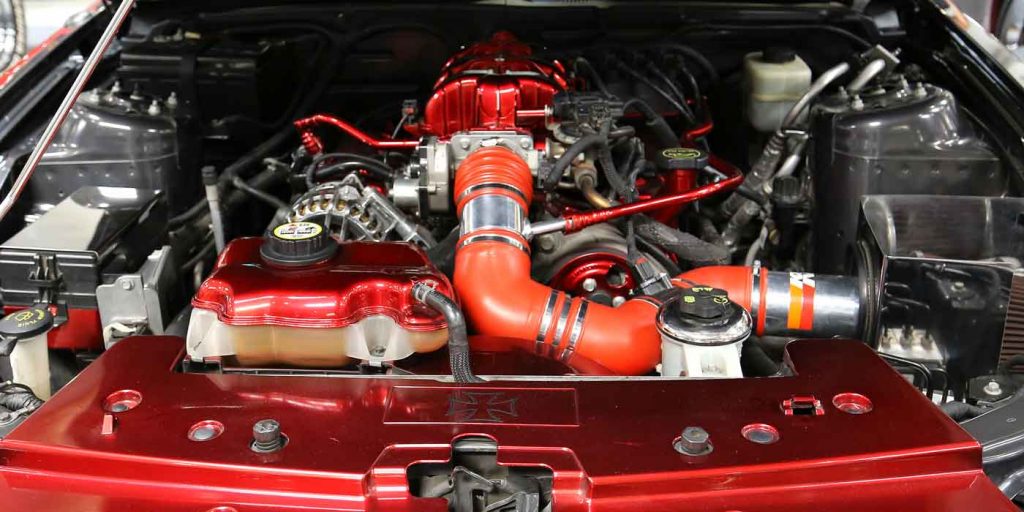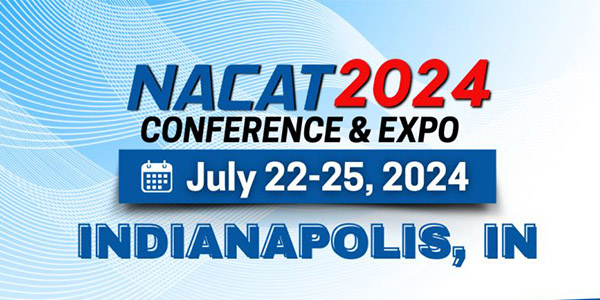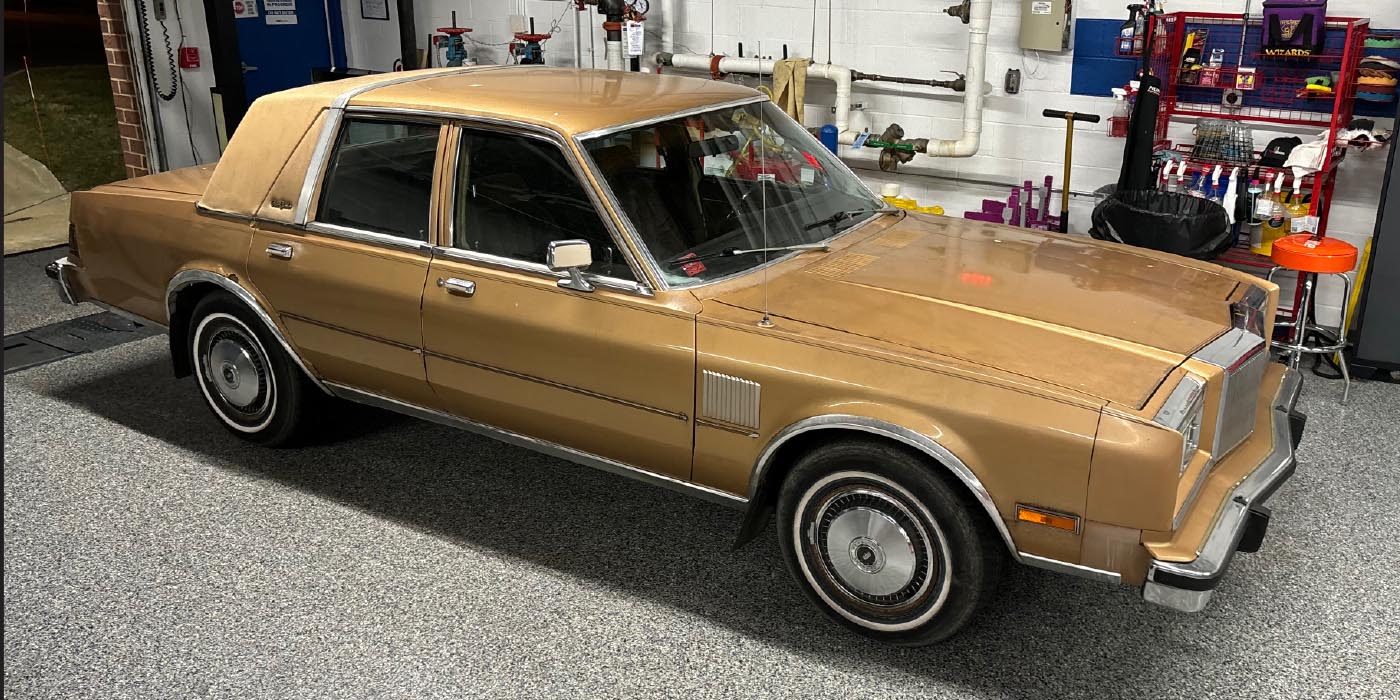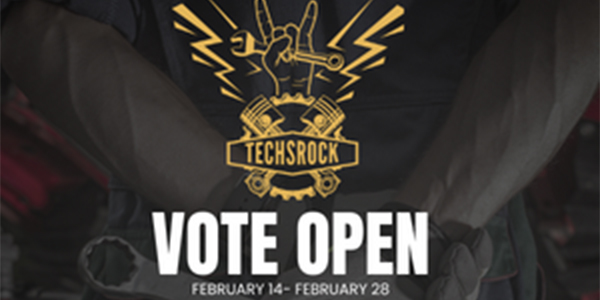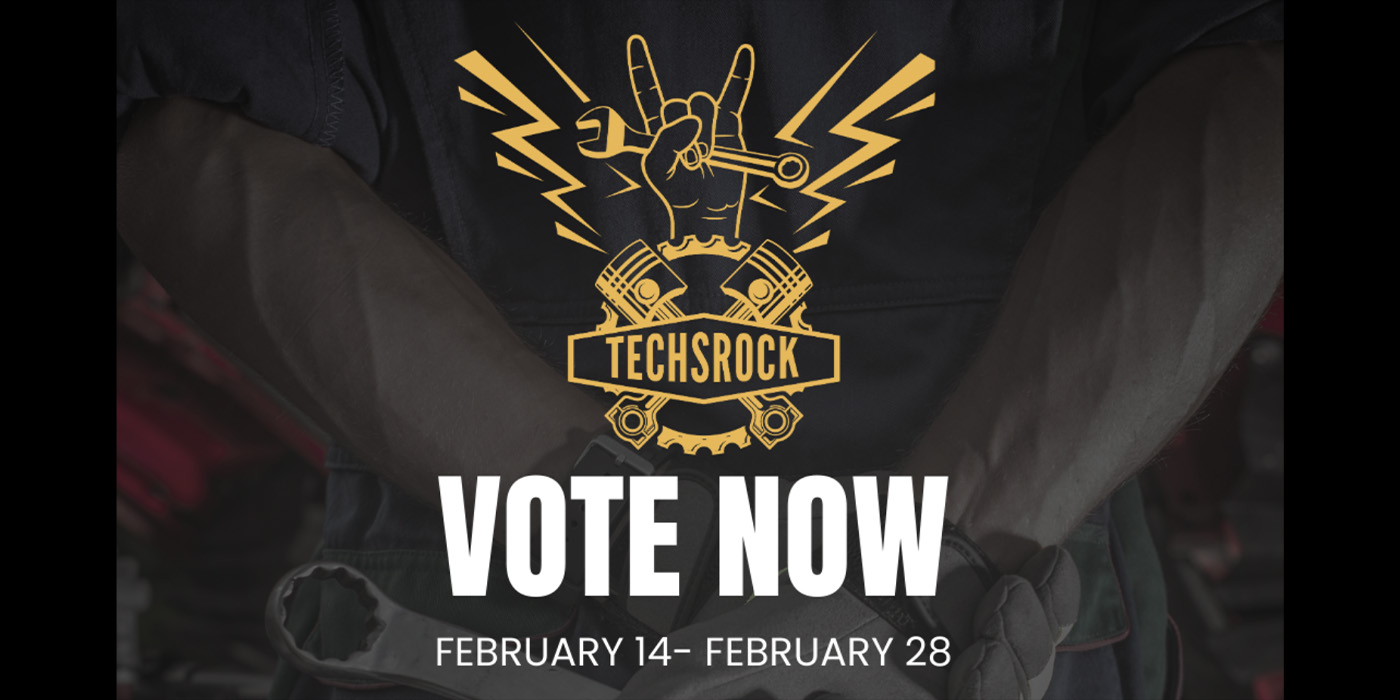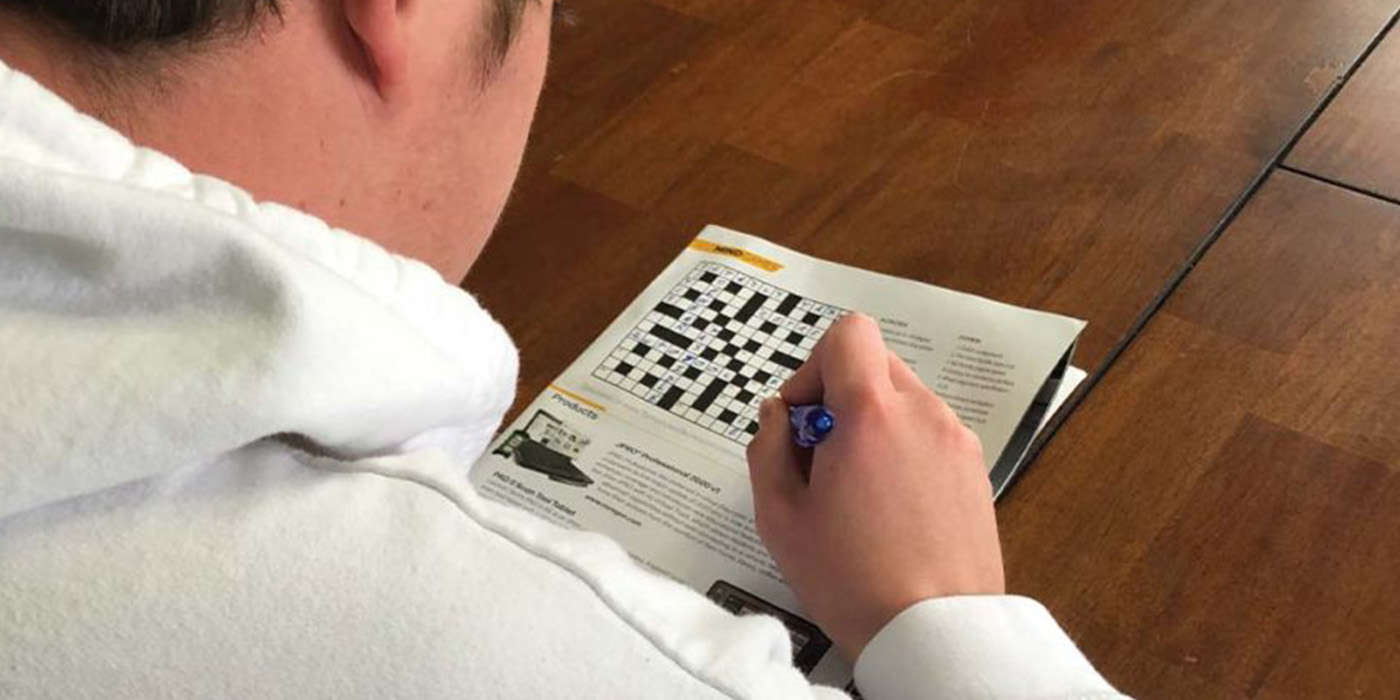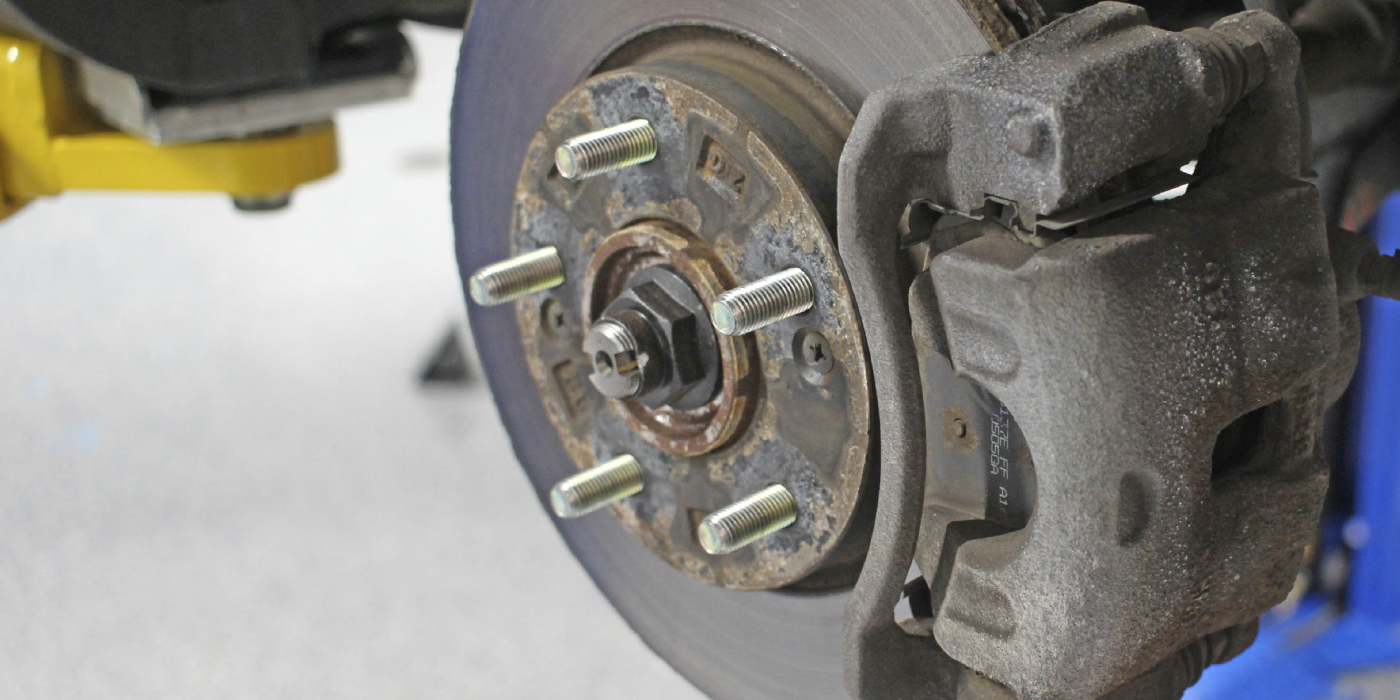We sat in on the Ford Gas HP Tuners, Level 1, Beginner/Intermediate class, held by The Tuning School out of Odessa, Florida. Hands-on experience is a crucial element of learning the new skills.
It’s a giant leap between torqueing down rod caps of an engine built with today’s latest high-performance parts and rooting around inside an engine’s computer. The big picture of computer tuning is getting inside those computers, learning what can be tuned, what results are obtainable and the performance expected. But how does one go from putting that torque wrench down and firing up the shop computer? Learning firsthand is good, but taking classes specifically designed for tuning is even better.
As today’s auto computers add more and more lines of code, understanding what they do and what you can do with them becomes more complicated. A good class will teach you not only how to get results, but exactly how they work with other changes and adjustments and how to get the most out of them.
Just how complicated are factory computers today? You’re up against literally millions and millions of lines of code. One of the first things we learned at the Mustang Dyno class was it typically takes three to four years for an OEM/factory to design and build a new computer program for an engine/trans/platform package. A good comparison would be using an iPhone for the first time. As one gets deeper into the settings, they would need to know what each one does and how any changes will work with the other settings and what effect it will have on how the phone works.
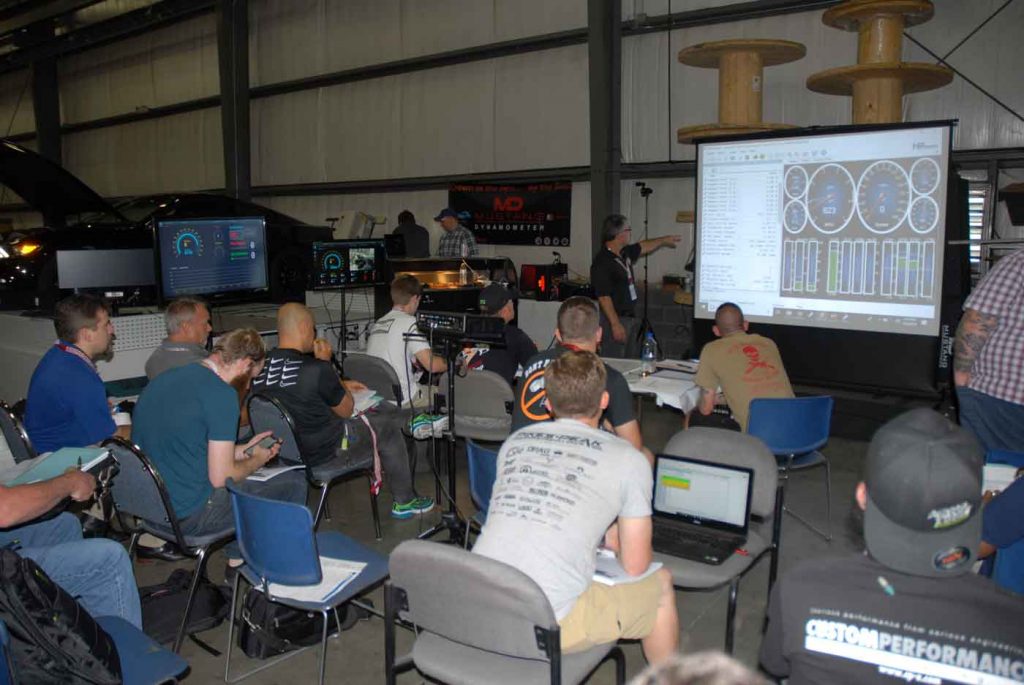
Specifically, we sat in on Ford Gas HP Tuners, Level 1, Beginner/Intermediate, held by The Tuning School out of Odessa, FL. They hold schools and seminars on a surprisingly high number of tuning disciplines and do so via online and hands-on classes. They even hold private classes for specific applications. The way they see it, “In the world of aftermarket performance modifications, more and more automobile enthusiasts need a good tune that they can rely on to maximize the thousands of dollars in aftermarket parts they have acquired.”
The school promises its class will teach the basics and beyond of Electronic Fuel Injection (EFI) systems, including all the theory and mechanics in an easy to understand format. During the class, every student got hands-on experience making and seeing real changes.
This beginner/intermediate class taught step-by-step tuning processes for Ford gas vehicles with vehicle modifications including headers and forced induction. They covered using HP Tuners software specifically on Ford vehicles with 4.6L, 5.4L, 5.0L and 6.2L engines. The 4.6L/5.4L tuning includes supercharged/turbocharged tuning processes. The 5.0L/6.2L tuning also included supercharged/turbocharged tuning processes, including throttle body tuning, variable cam timing (TiVct) tuning, Mapped Points and more. They also covered processes for injector data entry, idle, MAF tuning, part throttle, full throttle, and performance and drivability.
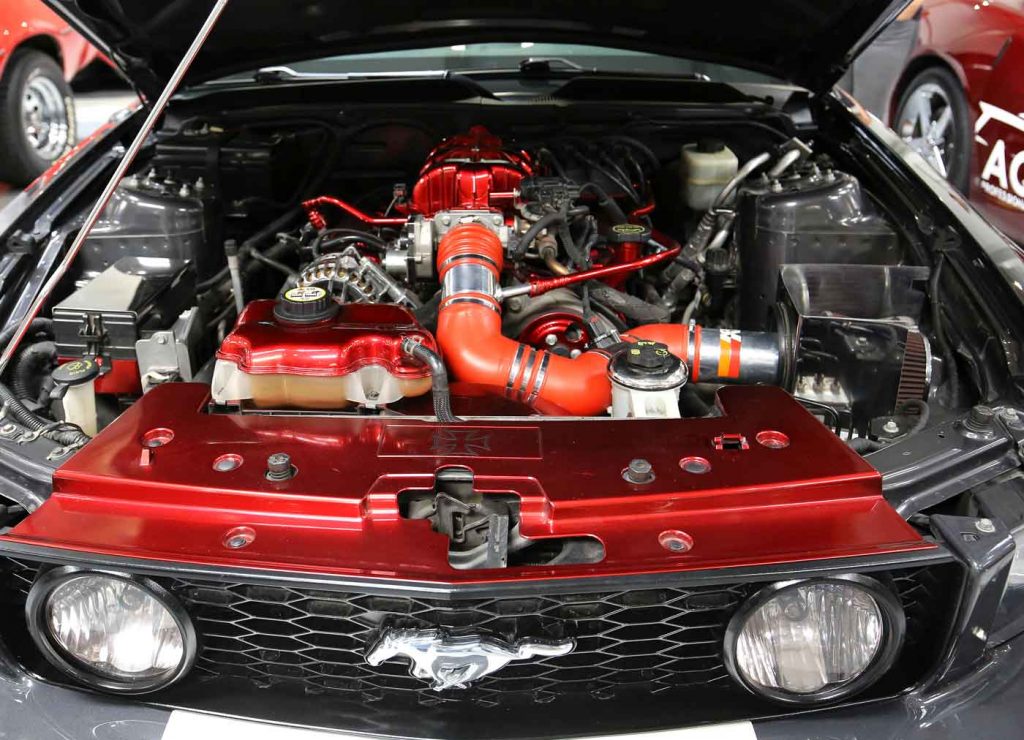
Our class was held at the headquarters of Mustang Dyno in Twinsburg, OH, so we also had the latest in chassis dyno equipment on-hand. The MD 500 dyno we used is good to 1500 HP, 190 mph, and is upgradable to work with 4WD. It’s a low inertia dyno, which means it’s sensitive to torque and power changes – perfect for tuning. The software for this unit is Windows-based and allows the user to test and tune using power pulls, 1/4 and 1/8-mile tests and general road testing. Full graphing reports are available to the user for post-run analysis.
The test car used for our class was a new Mustang owned by one of the students. The only mods on the car were an aftermarket cold air intake and headers. We saw firsthand how 30 hp were gained just by adjusting spark into a smoother curve. Similarly, we learned when the Ford Variable Cam Timing (VCT), which works via oil pressure, was turned off, the engine lost 50 hp on the top end.
One big area that speeds up learning are the materials the school gives students. Upon starting the class, an impressive 300+ page, full-color manual is yours – written in a process-oriented format. Also included are four sets of multi-page, laminated checklists for quick referencing the tuning process for each vehicle modification type. There’s a downloadable link to tune files and complex tables. Even better, every participant receives free forum, email and phone support after the class, including a year of tech support. And lastly, if you feel you need to hear the class all over again, they’ll let you attend the same class for free when seating is available.
Other elements of the class included the basics of how to use the HP Tuners software, which tables need to be changed for tuning needs, what the tables mean, how to understand them and how to adjust them properly to work with the vehicle’s modifications. They illustrate the order to tuning, such as when to adjust fuel, spark, etc. and use a safe and effective, repeatable process that can be used over and over again for different vehicle modification types.
Having a process helps in both consistency and checking back if there is a problem. They stress consistency in how you approach, change and follow up to make sure what you are doing will work and be efficient. Each time a set of changes – big or small – was uploaded into the car’s computer, a dyno run showed the results.
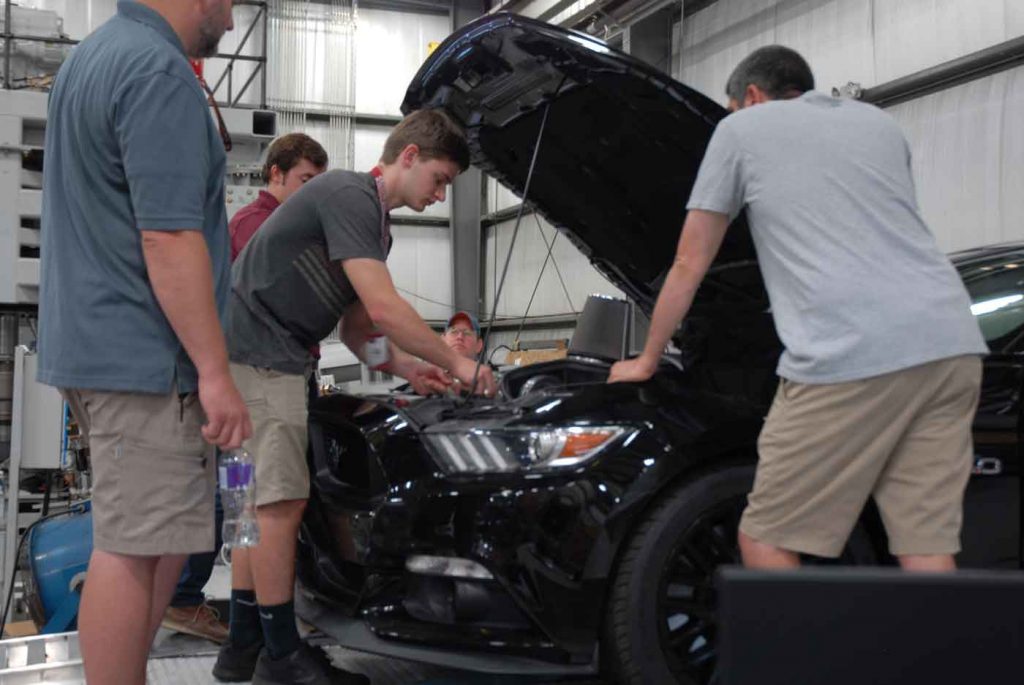
The school relies on the fact that people learn better in an interactive environment and their two full days of instruction and hands-on tuning experience works for those wanting to learn that way. With instructors having years of engine building and tuning experience, they have also written and edited several tuning manuals, some geared specifically for beginner tuners. While they quickly prove they know the codes they’ll be working with, they also know what sequence newbies should be brought in with to learn the processes the best.
We asked Steve Morgan from the school about why folks take this class, and he replied that they want to “gain a better understanding of the tuning process as a whole and the ability to make changes to vehicles with confidence.”
With newfound confidence after taking this class and a new skill set at the ready, any engine professional can apply this knowledge to various vehicles and engines.

